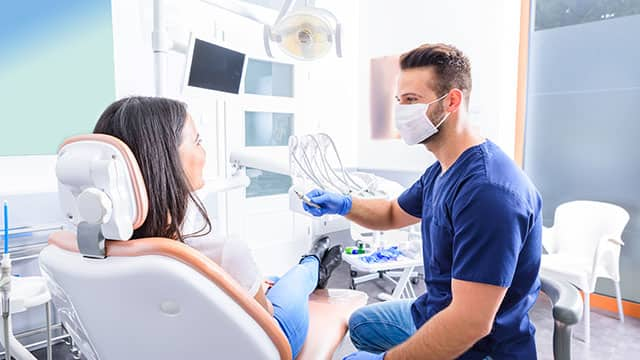You may be wondering, why exactly do teeth get shaved down? Teeth shaving is a clinical procedure that has been around for decades. It presents an option to help dental professionals achieve improved results for their patients. Shaving teeth down is typically a painless procedure done by a professional and does not usually need anesthesia. Let's go over the exact reasons for it!
Occlusal Equilibration
As noted by the International Congress of Oral Implantolagists, occlusal adjustment (equilibration) is the "modification of the biting surfaces of a tooth." It refers to reshaping the cusps (pointed tops) on the back teeth biting surfaces. The back teeth have numerous hills and valleys (called cusps and fossae) that help you chew your food. Ideally, your teeth should fit evenly together for a proper bite. If your bite doesn't fit, it can lead to a lot of dental problems. For example, it could cause wear and grinding, muscle spasms, and temporomandibular joint (TMJ) dysfunction.
When to shave down your teeth depends on your dental professional's recommendation. Occlusal adjustment through teeth shaving may take several dental visits to make your bite even and bring it into harmony. Your bite may feel different for a while, but the benefits will be well worth it!
Cosmetic Recontouring
The reshaping of front teeth for aesthetic reasons is also common. But again, even if the reason is cosmetic, a dental professional should do the teeth shaving. Cosmetic recontouring involves gently reshaping and polishing the front teeth to make crooked teeth appear straighter or more attractive. Enamel recontouring is probably the most common form of teeth shaving. It is usually accomplished in one visit after careful planning and close consultation with your dental professional.
Functional Reasons
In many cases, teeth are reshaped for functional reasons to accommodate a device or treatment. Also known as an odontoplasty, practical reasons to have your teeth reshaped include:
- To fit the clasps and rest seats (or anchor points) of a removable partial denture.
- To remove some of the enamel's outer layers, so there's more space between tipped teeth in the process of replacing a missing tooth.
- To "slenderize" teeth, which facilitates orthodontic treatment in cases of severe crowding.
For example, a study published in the Journal of Conservative Dentistry noted the positive effects of odontoplasty on a group of patients undergoing a crown lengthening procedure to manage extensive crown destruction.
Risks of At-home Teeth Shaving
It's completely normal to feel like there's something about your smile that you'd like to fix. But this isn't your regular at-home beauty routine. Did you know that the enamel of our teeth cannot grow back? Because of this, it's dangerous to attempt to shave your own teeth. You could permanently damage your teeth, cause pain and sensitivity to your mouth, and make your teeth more susceptible to tooth decay if you wear down your own enamel.
We believe that for the safety and health of your mouth, communication is key! You should feel comfortable bringing teeth shaving up with your dental professional if you'd like to do it for cosmetic reasons. And they may even suggest it themselves if you need a specific dental appliance or procedure that requires it. So don't be shy! Speak with your dental professional about your goals of getting a healthier, more attractive, and more easy-to-care-for smile.
Oral Care Center articles are reviewed by an oral health medical professional. This information is for educational purposes only. This content is not intended to be a substitute for professional medical advice, diagnosis or treatment. Always seek the advice of your dentist, physician or other qualified healthcare provider.
ORAL HEALTH QUIZ
What's behind your smile?
Take our Oral Health assessment to get the most from your oral care routine
ORAL HEALTH QUIZ
What's behind your smile?
Take our Oral Health assessment to get the most from your oral care routine















